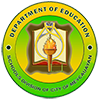It is imperative to ensure that all school personnel understand the legal implications of their actions, particularly when it comes to handling public funds. Dishonesty in any form is a grave offense that must be taken seriously. The case of Ma. Luisa R. Loreño highlights that accountability is not determined by one’s title or position, but by the nature of the duties they perform.
As such, it falls upon school administrators to guarantee that their staff comprehends their duties and obligations, as well as the repercussions of their behavior. It is essential that they grasp the corresponding sanctions for transgressions such as Serious Dishonesty, Grave Misconduct, and Conduct Prejudicial to the Best Interest of the Service.
Loreño’s case clearly demonstrates that her inability to explain the funds she collected and her use of them for personal gain was a breach of the law. Her actions resulted in a shortage of funds and compromised the reputation and credibility of her public position. The punishments meted out against her, which included termination from service, revocation of civil service eligibility, forfeiture of pension benefits, and permanent disqualification from holding public office, serve as a caution to others who might contemplate committing comparable transgressions.
To ensure proper handling and accounting of public funds, schools must establish effective internal controls and systems. Regular audits and strict compliance with accounting rules and regulations should be observed to prevent any irregularities or discrepancies.
In conclusion, all school personnel must understand the legal implications of their actions, particularly in relation to public funds. Dishonesty, whether committed by teachers or administrators, cannot be tolerated. As public servants, we have a duty to uphold the public trust and ensure that our actions always serve the best interest of the service.
EDUCATION AND THE LAW
Atty. Emerson T. Ceria
School Principal III


